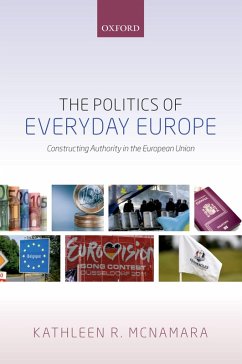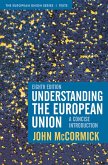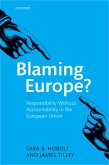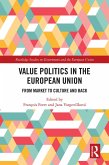How do political authorities build support for themselves and their rule? Doing so is key to accruing power, but it can be a complicated affair. The European Union, as a novel political entity, faces a particularly difficult set of challenges. The Politics of Everyday Europe argues that the legitimation of EU authority rests in part on a transformation in the symbols and practices of everyday life in Europe. The Single Market and the Euro, the legal category of European Citizen and policies promoting the free movement of people, EU public architecture, arts and popular entertainment, and EU diplomacy and foreign policy all generate symbols and practices that change peoples' day-to-day experiences naturalizing European governance.The modern nation-state has long used similar strategies of nationalism and 'imagined communities' to legitimize its political power. But the EU's cultural infrastructure is unique, as it navigates European national identities with a particularly banality, trying to make the EU seem complementary to, not in competition with, the nation-states. While this cultural legitimation has successfully underpinned the EU's surprising political development, Europe today is more often met with indifference by its citizens rather than affection. As economic and political crises have stretched European social solidarity to the breaking point, this book offers a clear theoretical framework for understanding how everyday culture matters fundamentally in the political life of the EU, and how the construction of meaning can be a potent power resource-albeit one open to contestation and subversion by the very citizens it calls into being.
Dieser Download kann aus rechtlichen Gründen nur mit Rechnungsadresse in A, B, BG, CY, CZ, D, DK, EW, E, FIN, F, GR, HR, H, IRL, I, LT, L, LR, M, NL, PL, P, R, S, SLO, SK ausgeliefert werden.









